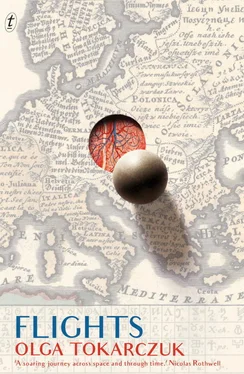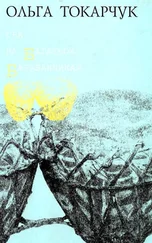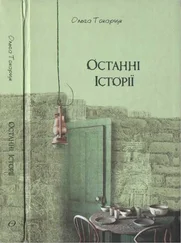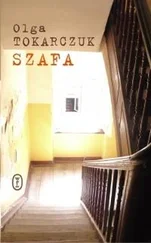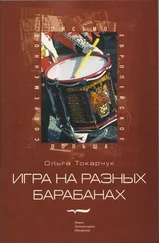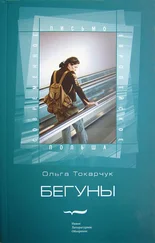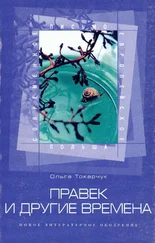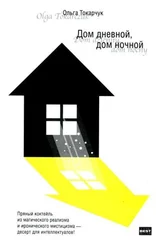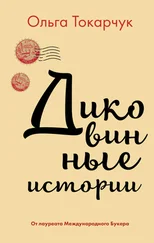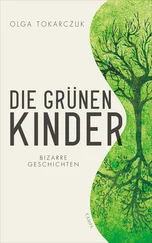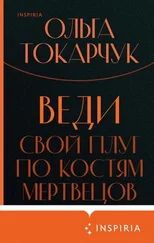‘So how’s it going?’ she says.
‘OK,’ he says.
He is lying: it is not going okay.
‘Stick that patch on me,’ he says, and he glances over at a flat box lying on his bedside table. ‘I’m in pain. We have to wait until it starts to work. I wasn’t sure when you’d get here, and I wanted to be conscious when you came. I might not have recognized you otherwise. I might think that maybe it wasn’t you. You’re so young and beautiful.’
She strokes the hollow at his temple. The patch adheres like a second skin, a mercy skin, just above where his kidneys are. She is shaken by the sight of a section of his body, so battered and beleaguered. She bites her lip.
‘Will I feel it somehow?’ he asks, but she assures him he didn’t need to worry about that.
‘Tell me what you’d like. Would you like to be alone for a minute?’
He shakes his head. His forehead is dry as parchment paper.
‘I don’t want to do confession,’ he says. ‘Just hold my face in your hands.’ He smiles weakly; there is mischief in his smile.
She does it without hesitation. She feels his thin skin and delicate bones, the cavities of his eyeballs. She feels him pulsing underneath her fingers, trembling, as though tense. The skull, that delicate latticework structure of bone, perfectly solid and strong yet fragile at the same time. Her throat tightens, and it is the first and last time she is close to tears. She knows this contact brings him relief; she can feel it soothing the tremor beneath his skin. Finally she removes her hands, but he stays still, with his eyes closed. Slowly she leans in over him and kisses his forehead.
‘I was a good person,’ he whispers, digging into her now with his eyes.
She assents.
‘Tell me a story about something,’ he says.
Stumped, she clears her throat.
He prompts her: ‘Tell me what it’s like where you are.’
So she starts:
‘It’s the middle of summer, the lemons on the trees are ripe now…’
He interrupts: ‘Can you see the ocean from your window?’
‘Yes,’ she says. ‘When the tide goes out, the water leaves seashells in its wake.’
But this is a ruse: he hadn’t planned to listen, and for a moment his gaze clouds over, but then its former sharpness is restored. Then he looks out at her from very far away, and then she knows that he is no longer a part of the world where she is. She could not have identified exactly what it was she saw in him – whether fear and panic or precisely the opposite: relief. Faintly he conveys – clumsily, and in a whisper – his gratitude, or something like it, and then he goes to sleep. Then she takes the vial from her purse and fills the syringe up with its contents. She removes the drip from the IV and slowly injects all the droplets of the liquid she has brought. Nothing happens aside from the fact that his breathing stops, suddenly, naturally, as though the movement of his rib cage from before had been an odd anomaly. She runs her hand over his face, reinserts the drip into his IV, and smoothes out the place on the sheets where she’d been sitting. Then she leaves.
His sister is standing on the porch again, smoking.
‘Cigarette?’ she says.
This time she says no.
‘Do you think you’ll be able to visit him again?’ asks the woman. ‘It’s been so important to him that you come.’
‘I’m leaving today,’ she says, and as she goes down the stairs, she adds, ‘You take care of yourself.’
When the plane takes off it switches off her mind. She does not give it a further thought. All those memories now disappear. She spends two days in Amsterdam, which at this time of year is windy and cold and could essentially be reduced to combinations of three colours: white, grey, and black, wandering around museums and spending the evenings at her hotel. As she walks along the main street, she comes upon an anatomy exhibit, with human specimens. Intrigued, she goes inside and spends two hours there, taking in the human body in all its possible permutations, perfectly preserved using the latest techniques. But since she’s in a strange state of mind and very tired, she sees it through a kind of fog, inattentively, just the outlines. She sees nerve endings and the vas deferens that look like exotic plants that had escaped the control of their gardener, bulbs, orchids, lace, embroidery of tissues, meshwork of neuration, slate shards, stamens, antennae and whiskers, racemes, streams, folds, waves, dunes, craters, elevations, mountains, valleys, plateaus, winding blood vessels…
In the air, over the ocean, she finds the coloured leaflet for the exhibit in her purse, featuring a human body, without skin, posed like in the sculpture by Rodin: head resting on hand resting on arm resting on knee, body troubled, almost thinking, and although it’s missing its skin and its face (the face turns out to be one of the most superficial characteristics of the whole human form), you can still see that the eyes are oblique, exotic. Then, half asleep, submerged in the dark, discreet rumble of the plane’s engines, she imagines that soon enough, when the technology becomes more affordable, plastination will be available to all. You’ll be able to put up the bodies of your loved ones instead of putting up tombstones, with labels like, ‘So-and-so travelled in this very body for a few years. Then he left it at such-and-such an age.’ As the plane prepares for its descent, she is suddenly seized by fear and panic. And she grips the armrests, hard.
When finally, exhausted, she gets back to her own country, back onto that beautiful island, the customs officer asks her several routine questions: had she come into contact with any animals where she’d been, had she been in rural areas, might she have been exposed to biological contaminants.
She pictures herself on that porch, shaking the snow off her boots, pictures that overfed dog running up the stairs and rubbing up against her legs. And she pictures her hands as they opened the vial that looked like a perfume sample. So she says, peacefully, yes.
The customs official requests that she step aside. And there her heavy winter boots are washed down with a disinfecting agent.
I gave a ride to a young Serb in the Czech Republic named Nebojša. The whole way he told me stories about the war, to the point that I began to regret that I’d picked him up.
He said that death marks places like a dog marking its territory. Some people can sense it right away, while others simply start to feel uncomfortable after a time. Every stay in any place betrays the quiet ubiquitousness of the dead. As he said:
‘At first you always see what’s alive and vibrant. You’re delighted by nature, by the local church painted in different colours, by the smells and all that. But the longer you’re in a place, the more the charm of those things fades. You wonder who lived here before you came to this home and this room, whose things these are, who scratched the wall above the bed and what tree the sills were cut from. Whose hands built the elaborately decorated fireplace, paved the courtyard? And where are they now? In what form? Whose idea led to these paths around the pond and who had the idea of planting a willow out the window? All the houses, avenues, parks, gardens and streets are permeated with the deaths of others. Once you start feeling this, something starts to pull you elsewhere, you start to think it’s time to move on.’
He added that when we are in motion, there’s no time for such idle meditations. Which is why to people on trips everything seems new and clean, virginal, and, in some sense, immortal.
And when he got out at Mikulec, I repeated to myself his strange-sounding name. Ne-boy-sha. It sounded exactly like the Polish ‘ Nie bój się ’: do not be afraid.
Читать дальше
